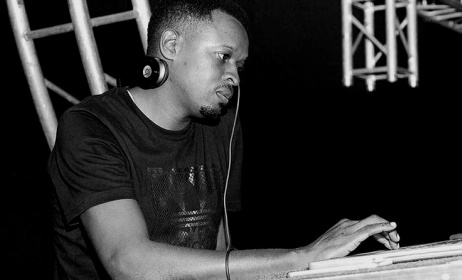More Ugandan musicians turn to politics as Bobi Wine rattles Museveni status quo
Bobi Wine was the first musician in Uganda to be elected as MP in 2017. He is now the youngest presidential candidate in the upcoming general election on 14 January, when the 38 year old will be the main challenger to President Yoweri Museveni’s almost four-decade grip on power.
Bobi Wine, whose real name is Robert Kyagulanyi, is running on the National Unity Platform ticket and his manifesto pledges prosperity for Ugandans, especially the youth. It also promises improvements to the health-care, education and agriculture sectors as well as equal opportunities for all, built on the pillars of transparency, unity and human rights.
But Bobi Wine is not the only musician seeking legislative, mayoral or district leadership seats across Uganda. Hilderman, Kato Lubwama, Geoffrey Lutaaya and Katongole Omutongole have been campaigning for parliamentary seats, while one of Uganda’s best known musicians, Joseph Mayanja (popularly known as Jose Chameleone), will be running for mayor in the capital Kampala against reggae-dancehall artist Ragga Dee. Councillorship hopefuls for the Makindye, Bunamwaya, Lubaga North and Kampala Central Division municipalities are Dr Bitone, DJ Jacob Omutuuze, Victor Kamenyo and Sophie Gombya, respectively. Mathias Walukagga will be contesting the Kyengera Town Council mayoral seat in Wakiso District.
“I am not surprised that many artists are contesting,” Ugandan musician and activist Maro told Music In Africa. “Politicians and musicians have a lot in common, including the fact that both have to engage the public and often push for a cause.”
Campaigning ahead of the elections has been tense. Bobi Wine and other opposition candidates have faced restrictions on movement, intimidation and harassment from the police. He began wearing a bulletproof vest after his car was shot at and an explosive device was detonated near him while on the campaign trail. He and his team say they spent several nights sleeping in their vehicles after officials prevented them from booking into hotels. On 12 January, he said soldiers raided his home on Tuesday and arrested his security guards. “The army has this morning raided my home, arrested all my security guards and anyone they could see around my premises,” he wrote on Twitter.
There have also been numerous arrests of activists, journalists and those presumed to be opposition supporters. Local and international media reported that more than 50 people were killed in violent clashes between anti-Museveni protesters and security forces in Kampala last November. Thus far, there has been no official inquiry into the extrajudicial killings and human rights violations by security forces.
“More than 1 000 of our supporters have been kidnapped,” Bobi Wine said in a New Year’s address on 2 January. “Some are being held in military incarceration while others have disappeared and are yet to be seen.”
Maro says although many Ugandans are looking forward to the end of Museveni’s reign, it is likely that the 76 year old will add another presidential victory to his name. “Museveni commands loyalty from public institutions, the security forces and much of the bureaucracy that has benefited from his long stay in power. For example, the Electoral Commission has in previous elections been accused of anti-opposition bias.”
Maro added that if Museveni lost the election, he would likely not concede defeat. In 2005, Uganda’s MPs voted to remove a limit of two five-year presidential terms, which blocked Museveni from standing at the time. In 2017, when Bobi Wine was picking up political steam, the National Resistance Movement majority Parliament amended a constitutional clause that limited the age of a presidential candidate at 75 years.
“The stakes are high for a Bobi Wine victory, but there are doubts that the election will be fair,” Maro said. “The public’s faith in the commission’s confidence is low, and conditions for a free and fair vote do not exist. When Museveni was first elected, he promised to hand power to the civilians, but he went back on his word. Therefore, he will not accept anything less than a victory. If there are claims of election fraud from either side, there is a likelihood that violence will occur. So the party leaders’ key challenge would be to stop it from cascading and avoid further bloodshed.”


































Comments
Log in or register to post comments